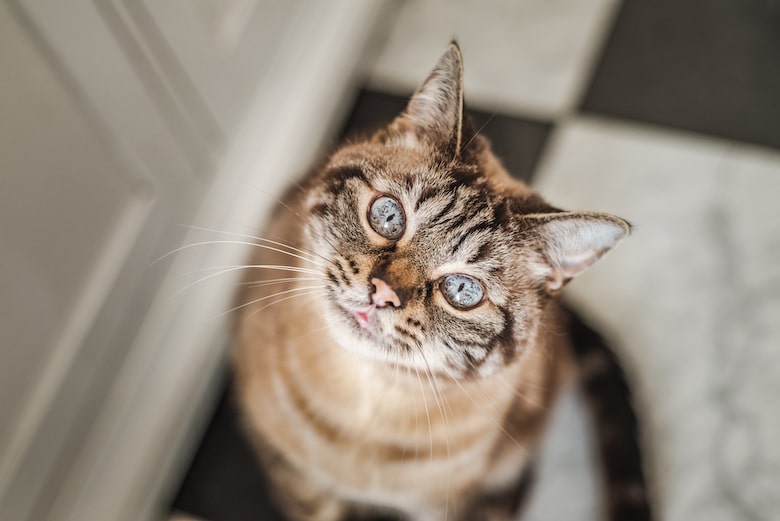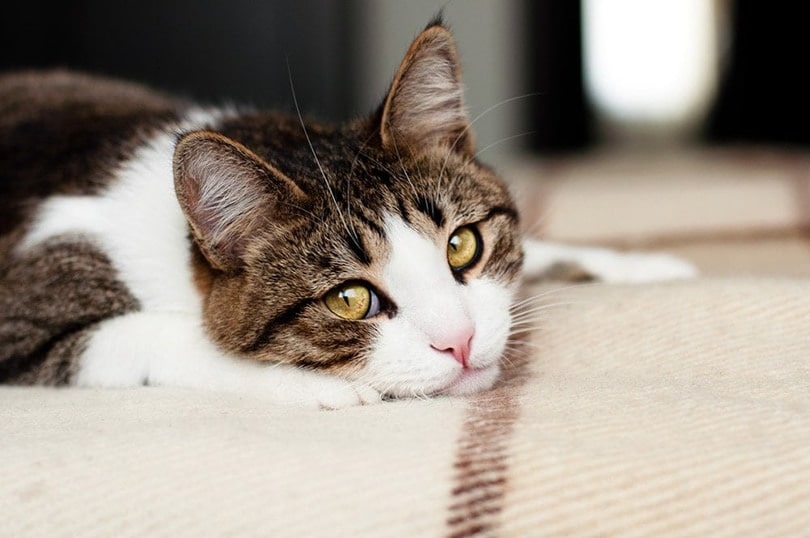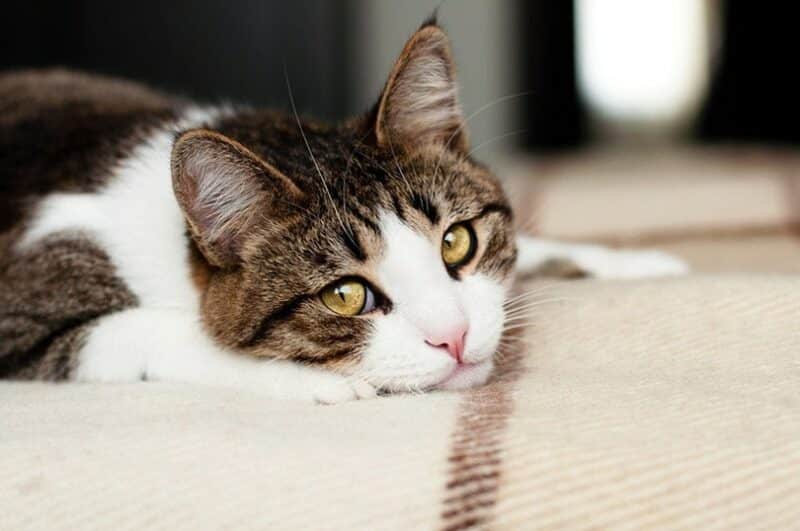Feline Senile Dementia also sometimes known as Cognitive Dysfunction System (CDS) is an age-related disease that impacts the brain. Like dementia in humans, cats who experience dementia will generally display a decrease in memory, awareness and recognition of the world around them including their home, as well as guardians and any other animals in the family.
Here are the feline dementia symptoms to watch for
Symptoms of dementia can begin showing up in cats that most us might not even think of as particularly old. Dr. Tory Waxman, a small-animal veterinarian and co-founder of human-grade dog food brand Sundays explained that in cats as young as 7 and 8 symptoms of dementia can be observed. She notes that signs of dementia are generally behavioral shifts. Common symptoms include
- Random vocalizations
- Seeming to be lost in familiar environments
- Change in litter box habits
- Becoming more or less friendly — or other changes in demeanor
- Over or under-grooming
- Appetite changes
Dr. Waxman advises “if any of the aforementioned or other behavioral changes are noted, cat parents should notify their veterinarian.” Your vet will be able to help you to determine if there is a different underlying health issue or if your cat has dementia.
How feline dementia is diagnosed
As there is no one test that can determine if your cat has dementia, feline dementia is mainly diagnosed based “on abnormal behavior reported by a pet parent after the exclusion of other causes,” says Dr. Waxman.
In order to determine if your cat has dementia, your vet will need to do a full and thorough examination, including a physical exam, blood pressure, bloodwork and urinalysis to determine if there are any other underlying medical conditions.
If you suspect your cat has dementia, Dr. Waxman advises taking video recordings that you can show or email to your vet. “Many cats are quite nervous at the veterinary office so are unlikely to display any abnormal signs” notes Dr. Waxman. Having a video showing the symptoms you see at home can help your vet to develop a more comprehensive understanding of your cat’s health. Depending on the symptoms your cat is presenting, your vet may also refer you to a consultation with a veterinary neurologist or behaviorist.
Related: Is Telemedicine For Cats Here To Stay?

What is the treatment for feline dementia?
Treatment for feline dementia can be tricky.
“Unfortunately, very little research has been done regarding feline dementia so most treatment options are extrapolated from human and canine medicine,” says Dr. Waxman.
There are a number of supplements marketed as providing cognitive support, but always consult with your vet before adding any supplements to your cat’s diet.
“Antioxidants (such as Vitamin E) are thought to slow the development of dementia due to oxidative stress being implicated in the development of dementia,” says Dr. Waxman, adding that with your vet’s approval, adding fish oil into your cat’s diet can be helpful, but make sure that you use fish oil that is labeled as cat safe to make sure there are not harmful additives included.
CBD has become increasingly popular for treating a variety of feline conditions including dementia. However, Dr. Waxman notes “unfortunately there is minimal scientific evidence” to support claims that it would support a cat with dementia. She advises that if you are considering using CBD with your cat to talk with your vet, of course, pay attention to any state and local laws, and reminds to only give “cat-specific products made by companies that are actively doing research on their products (such as Ellevet).”
If your cat seems to be anxious after being diagnosed with dementia, Dr. Waxman encourages use of the calming pheromone Feliway, or Zylkene which is a natural supplement from milk protein, both of which have been shown to decrease stress and promote calmness, but again you want to consult with your cat’s veterinarian before use.
Prognosis
Prognosis of cats with dementia differs greatly cat to cat.
“Some cats may show minor behavioral changes that don’t impact their daily lives, whereas other cats may have dramatic changes that progress quickly” Dr. Waxman says.
How to support your cat experiencing symptoms of dementia
Sharing your home with a cat who is experiencing dementia can be heartbreaking. None of us like to see our cats confused or in any kind of emotional distress. To support your cat, the key is keeping Kitty as comfortable as possible.
It’s important for a cat with dementia to not be let outside as the cat “may have difficulty finding their way home, and there are many dangers outside that could be even that much more dangerous to a cat with dementia. (including traffic, other cats, dogs, wild animals, getting caught in fences, etc.),” says Dr. Waxman. If your cat is unsteady on their feet, stairs and ramps to favorite furniture can support cats with dementia feeling more comfortable, and can prevent falling injuries.
If your cat has dementia, one of the most important things you can do is to keep the home environment as consistent as possible. Dr. Waxman encourages to, whenever possible, avoid rearranging furniture. Keeping routines as consistent as possible will also support your cat with feeling safe and knowing where they are in the home as they continue to age.
Prevention
Just like with people one of the most important things that you can do to prevent feline dementia is to keep your cat mentally stimulated.
“Most cats actually love learning tricks, and it’s a great way to keep them mentally stimulated! You can teach your cat to sit or come using treats as a lure, and then pairing a word eventually once they start to offer the behavior. It might seem like just a fun game to your cat, but it is challenging them mentally,” says Dr. Waxman.
Read Next: 6 Things to Remember About a Senior Cat’s Needs
Featured Image Credit: medveda, Shutterstock






